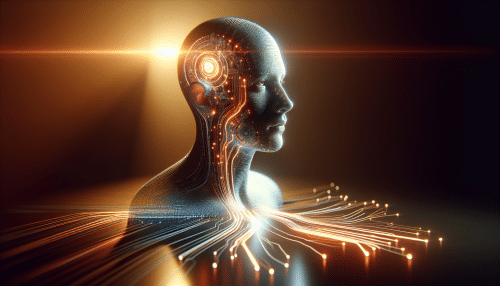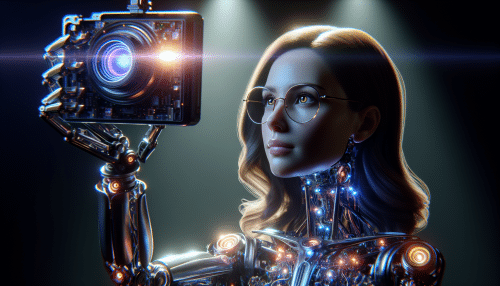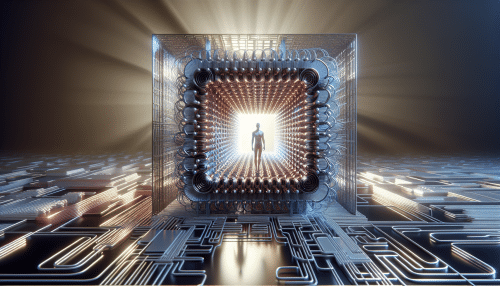How AI Is Transforming Everyday Life in 2025
Brian Taylor May 15, 2025
Artificial Intelligence (AI) is no longer a concept for the future. In 2025, it has become part of our daily routines—changing how we communicate, work, learn, shop, and manage our health. This article explores how AI is transforming everyday life, focusing on the most relevant trends shaping the way we live.

Smarter Virtual Assistants
AI-powered virtual assistants have come a long way. Unlike earlier versions, tools like Google Assistant and Amazon Alexa now respond with a deeper understanding of context. They also anticipate what you might need before you even ask.
- These assistants help manage schedules, check traffic, and order your usual coffee.
- They now work across devices, from smartphones to smartwatches to home appliances.
As a result, the way we interact with our technology feels less like a task and more like a natural extension of our own routines.
Personalized Healthcare Support
Healthcare is one area where Artificial intelligence is making a significant difference. With faster, more accurate tools, patients get support that is tailored to their needs.
- IBM Watson Health helps predict medical risks, like strokes or heart attacks, before they happen.
- Apps like Babylon Health allow users to check symptoms with chatbot-based triage.
- Artificial intelligence also helps create treatment plans that consider genetic and lifestyle factors.
Clearly, these innovations are not just about convenience—they’re about better outcomes.
Smarter Homes and Energy Use
AI-powered smart homes don’t just respond to commands. They learn your habits and adjust automatically, making everyday life more comfortable and efficient.
- Nest thermostats use machine learning to save energy while keeping your home cozy.
- Smart cameras with facial recognition improve home security.
- Systems monitor your habits to help reduce waste and manage supplies.
Over time, these features lead to real savings and lower energy use.
Enhanced Learning Environments
Education is changing too. Schools are using AI to support students more effectively and reduce repetitive tasks for teachers.
- Platforms like Carnegie Learning adjust lessons based on student performance.
- Essay grading tools give quick, useful feedback.
- Chatbots provide homework help and reinforce concepts.
This means learning becomes more personalized, and teachers have more time for meaningful instruction.
Transportation and Artificial intelligence: Beyond Self-Driving Cars
AI is also making transportation safer and more efficient. While self-driving cars grab headlines, other systems are making an impact too.
- Waymo and Tesla have introduced driverless taxis in some cities.
- AI tracks vehicle health and predicts failures before they become problems.
- Cities use AI to manage traffic, reducing congestion and travel time.
In short, AI is helping people and goods move more smoothly through cities.
Shopping Experiences That Feel Personal
Retailers are using AI to create smoother and more personal shopping experiences.
- Amazon and other platforms suggest products based on your browsing and buying history.
- Artificial intelligence helps predict what items will be in demand, helping stores stock wisely.
- Augmented reality tools let users “try on” clothes or makeup at home.
This isn’t just good for consumers—it helps businesses run more efficiently too.
Responsible AI and Data Use
With Artificial intelligence so deeply integrated into life, it’s important to think about how it is used.
- Developers are building tools to check for bias in AI decisions.
- Privacy laws, such as the GDPR, are expanding to protect personal data.
- More tools now explain how AI decisions are made, which builds trust.
So while AI improves convenience, it also requires responsible use.
Conclusion
In 2025, artificial intelligence is part of nearly every part of everyday life. From getting ready in the morning to managing your health or learning new skills, Artificial intelligence is working behind the scenes. While it makes tasks easier and faster, it also raises important questions about fairness, safety, and privacy. As we continue to use AI daily, we must also ensure it benefits everyone—not just a few.
References
- Consumer Technology Association. (2024) AI and smart devices in U.S. households. Washington, DC: CTA.
- IBM Watson Health. (2024) AI in predictive healthcare: Innovations and outcomes. Armonk, NY: IBM Corporation.
- Statista. (2024) Smart home adoption and AI integration trends. New York, NY: Statista Inc.
- Carnegie Learning. (2023) AI-based adaptive education: Enhancing student outcomes. Pittsburgh, PA: Carnegie Learning Inc.
- European Commission. (2023) General Data Protection Regulation (GDPR) compliance and AI transparency. Brussels: European Union Publications.
- McKinsey & Company. (2023) The state of AI in 2025: Business impact and consumer adoption. New York, NY: McKinsey Global Institute.
- Journal of Artificial Intelligence Research. (2023) Bias detection and mitigation in machine learning systems, 76(3), pp. 233–248.







